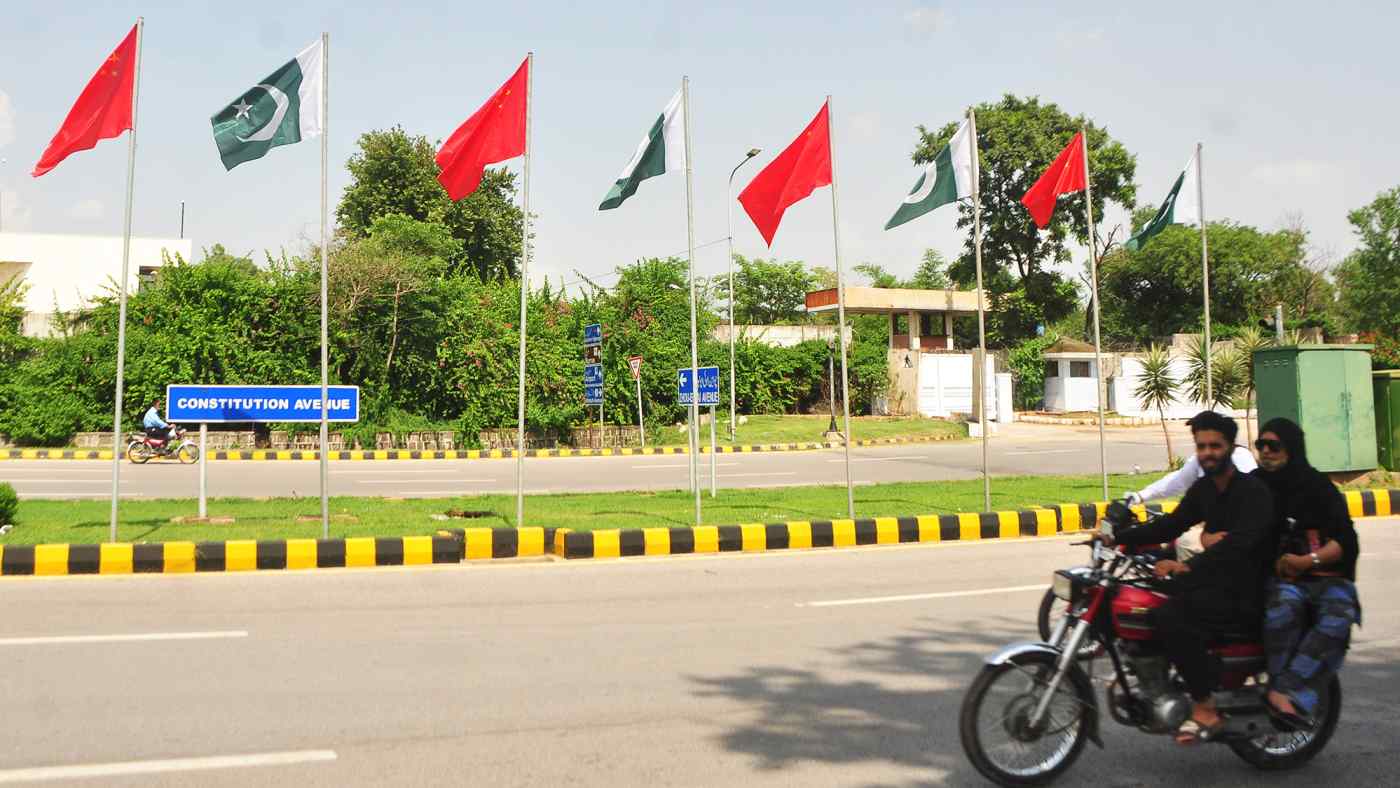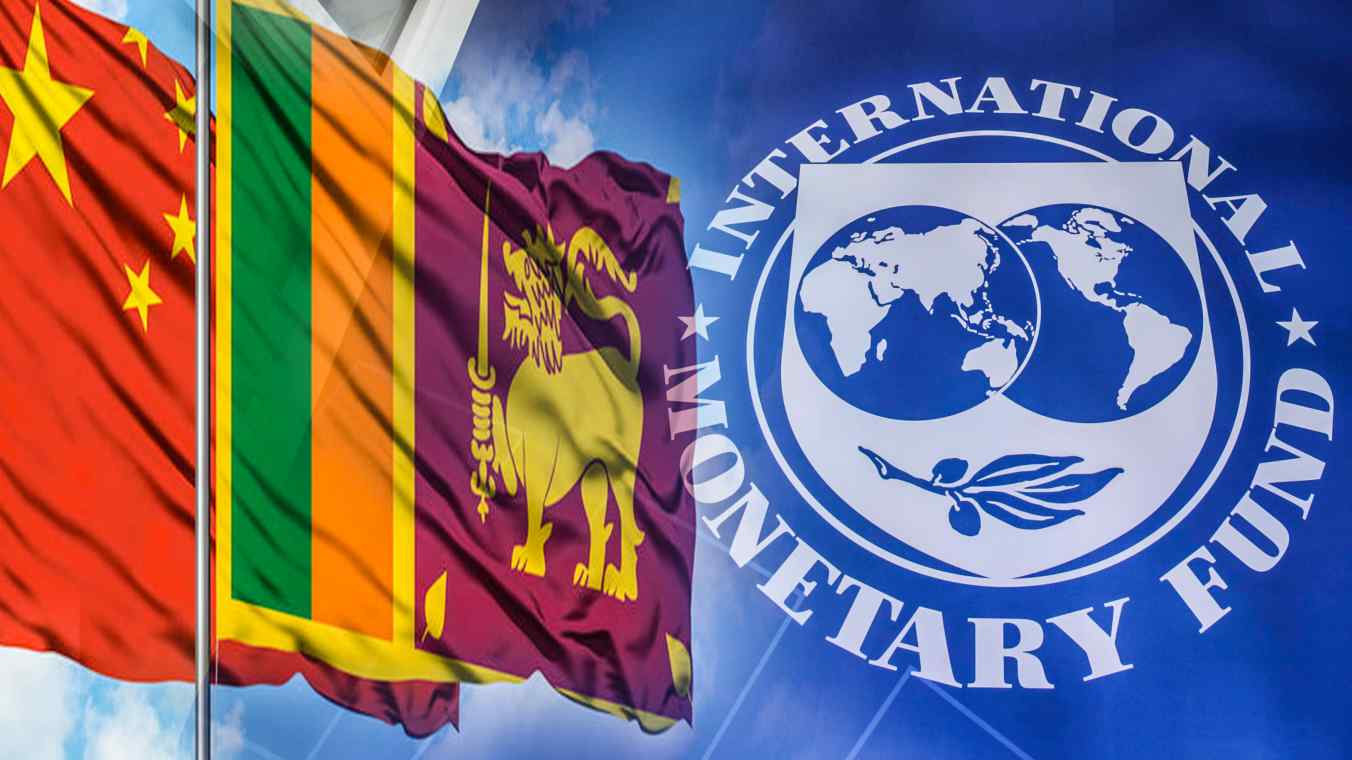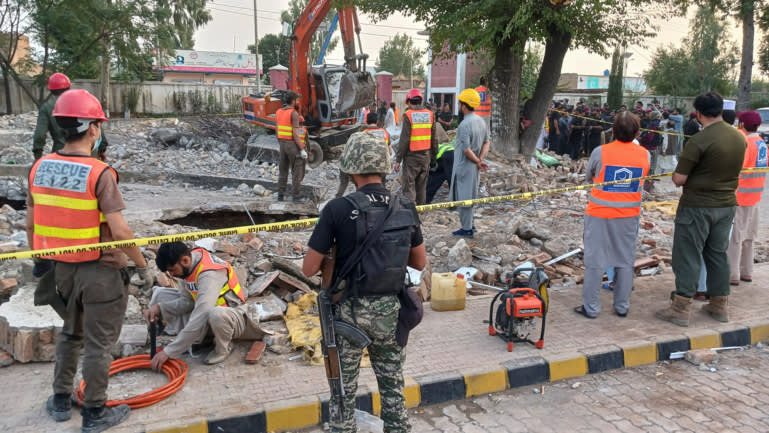My (completely wild) guess is that Gwadar is far away from all the troubles that plague Pakistan (terrorism, violence, politics etc.) and hence China can build and commission a plant fairly autonomously. China doesn't want to do any work in the 'mainland' Pakistan, probably based on their previous experience.Shocking if true - not sure what to make of it .. Pakistan needs to get away from energy imports, so if local coal cannot be used - it makes the import issue reliant on foreign exchange more pressing. Why import coal if you have it locally? Is the issue more on security issues where Pakistan wants to move the plant, or the quality of the coal is not suitable ?
If this is the constraint - then Pakistan should simply not build this plant at all .. period.
The fact that Pakistan itself cannot stop this - or was forced to accept it just shows the fundamentally flawed model of governance in Pakistan that refuses to learn anything.
As with all news reports - you dont know if is true - or a paid piece to push a political agenda. But if true - it is worrying to see China push Pakistan into a corner that is at a determent to Pakistan's long term future success ...
How to install the app on iOS
Follow along with the video below to see how to install our site as a web app on your home screen.
Note: This feature may not be available in some browsers.
You are using an out of date browser. It may not display this or other websites correctly.
You should upgrade or use an alternative browser.
You should upgrade or use an alternative browser.
Mission Sabotage CPEC: Plan for Gwadar Electricity Power Plant Scraped
- Thread starter Crimson Blue
- Start date
Iranian women fought for the freedom of the headscarf and won, the government abolished the moral police, the Chinese people fought for prevention and control, won, and the government abolished the strict epidemic prevention policy.
Pakistanis think the government is corrupt, why not fight?
@Menace2Society @Bleek
@Horse_Rider @Crimson Blue
@OldenWisdom...قول بزرگ
@epebble @Catalystic
@villageidiot
Those Iranian women were brave (or maybe crazy). A lot of them were sexually abused by security personnel. They still stood their ground.
Puffin
FULL MEMBER

- Joined
- May 27, 2023
- Messages
- 587
- Reaction score
- 0
- Country
- Location
China spurned Pakistan's proposals for new Belt and Road projects
Meeting minutes reflect Beijing's concerns over political instability, security
Islamabad is decorated with flags to welcome China's vice premier in July. Beijing has shown a reluctance to expand the scope of Belt and Road projects in Pakistan. © Getty Images
ADNAN AAMIR, Contributing writerOctober 2, 2023 15:02 JST
ISLAMABAD -- China rejected calls to invest in fresh Belt and Road projects in Pakistan, according to the minutes of a high-level meeting between the neighboring nations, a stance experts chalk up mainly to the political uncertainty and deteriorating security plaguing Islamabad.
Two officials who have seen the minutes told Nikkei Asia that the Chinese side turned down Pakistan's suggestions to add more projects related to energy, climate change, electricity transmission lines and tourism under the China-Pakistan Economic Corridor (CPEC) -- the $50 billion Pakistani component of the Belt and Road.
The minutes also reveal that Beijing declined Islamabad's proposal to build a 500 kilovolt transmission line to connect the southern port of Gwadar -- a focus of Chinese infrastructure investment -- to the national electricity grid from Karachi, according to the officials. At the same time, Beijing forced Pakistan to drop its objections to a 300 megawatt coal-fired power plant in Gwadar, which Islamabad wanted to move to another location where domestic rather than imported coal could be used.
The 11th meeting of the Joint Cooperation Committee (JCC), the top decision-making body for CPEC, took place in October last year, but the minutes were signed in July. The officials confirmed local media reports that also highlighted China's reluctance to deepen its presence in Pakistan.
In response to such reports, Pakistan's Ministry of Planning and Development downplayed Beijing's standoffishness, stating that "China and Pakistan are committed to expanding the scope of [CPEC] to include new areas of cooperation, such as water resources management, climate change and tourism."
But as China marks the 10th anniversary of the Belt and Road Initiative -- its massive endeavor to expand its influence and build infrastructure stretching from Asia to Europe and Africa -- Beijing appears to be growing more selective, particularly at a time when its own economy is slowing down.
SEE ALSO

China keeps Sri Lanka in debt grip, stalling IMF relief
Maldives' Muizzu marches to victory on anti-India drumbeat
Vietnam needs more than an upgraded U.S. partnership
"Like any investment process, China is adapting its BRI investment process based on experience and a deeper understanding of how to more effectively align investments with strategic objectives," said Andy Mok, a senior research fellow at the Center for China and Globalization, a Beijing think tank."China's approach to Belt and Road investments is guided by prudence and long-term sustainability. Concerns like political instability in partner countries like Pakistan necessitate greater caution, especially regarding the safety of Chinese nationals," Mok said. "In the midst of global and domestic challenges, aligning investments closely with China's strategic interests is essential for the initiative's long-term success."
Pakistan has been in a state of political upheaval since former Prime Minister Imran Khan's government was toppled in April 2022, prompting multiple bouts of civil unrest. In recent years, militants have also repeatedly targeted Chinese interests, including an ambush of engineers in August that was thwarted by security forces. Underlining Pakistan's deteriorating security situation overall, terrorists carried out a pair of deadly suicide bombings last week.
Experts believe that there are multiple reasons for Beijing's reticence, but that political instability tops the list.
Jeremy Garlick, an associate professor of international relations at Prague University of Economics and Business, said Pakistan has proved to be a hotbed of social disorder and violence. "Although China needs Pakistan as a partner for geopolitical reasons, the Chinese are reluctant to commit more funds than necessary," he said.
James M. Dorsey, a senior fellow at the S. Rajaratnam School of International Studies in Singapore, told Nikkei that Pakistan's renewed wave of violence has disrupted the investment climate. "Chinese believe that security of their personnel and assets is in jeopardy in Pakistan," Dorsey said.
Pakistan has agreed to further beef up security for Chinese personnel involved in CPEC projects, according to local media. Bulletproof vehicles, for example, are to be used for all movement of Chinese workers. But there are other reasons for Beijing to dislike what it sees in Pakistan, experts say.

Qamar Cheema, a strategic and political analyst based in Islamabad, said the political class in Pakistan has a tendency to treat CPEC projects as investments in their constituencies for winning elections, rather than an economic collaboration between Pakistan and China. After a delay, the country is now expected to go to the polls at the end of January.
Then there is the question of whether further investments in CPEC make economic sense for China. Observers say that from the Chinese perspective, economic gains from the endeavor, at least in the short term, look increasingly dicey.
Muhammad Tayyab Safdar, assistant professor of global studies at the University of Virginia, pointed to $1.2 billion in overdue payments to Chinese power producers. Pakistan has struggled to pay them due to its serious cash shortage.
"[The Chinese will] still make money, but with much angst, at least in the power sector," Safdar said.
Garlick argued that the Chinese government "does not believe anymore that it can get economic returns from CPEC." In his view, China's slow pattern of investment and reluctance to loan more money show that Beijing does not believe in CPEC as a driver of economic growth for itself or the region.
Pakistani government officials interviewed on background insisted they remain optimistic that China will resume CPEC investments once the elections are held early next year.
Cheema, the analyst in Islamabad, suggested this is possible, since the South Asian nation of over 240 million is too important to be ignored. China is "making Pakistan realize that its part of the bargain must be fulfilled to win investors' confidence," Cheema said, adding that Beijing may opt to invest more once a new government with a fresh mandate takes office in Islamabad.
Garlick, however, was not so sure.
"Pakistan has shown itself to be an inherently unstable political entity," he said. "The Beijing government has seen enough over the years to know that Pakistan achieving stability and steady economic growth is an unlikely prospect."
Additional reporting by Cissy Zhou in Hong Kong.

China spurned Pakistan's proposals for new Belt and Road projects
Meeting minutes reflect Beijing's concerns over political instability, security
Similar threads
- Replies
- 0
- Views
- 686


